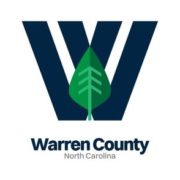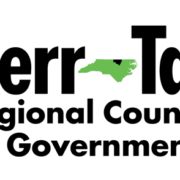— Information courtesy of Warren County Schools
Warren County Schools has appointed principals at Warren County High School and Northside Elementary School.
Dr. Lionel Kato and Dr. Tobias Hocutt, Sr. bring experience and a passion for helping students succeed with their collaborative approach to leadership, according to a press release from Crystal Myrick, director of Community Engagement and Communications for Warren County Schools.
With more than 25 years of experience in public education, Kato brings seasoned leadership and a proven track record of excellence to Warren County High School. His career began in 1999 as a high school social studies teacher at his alma mater, New Bern High School, before becoming a middle school math in Jones County.
Kato has served in school administration at every level, including four years as a middle school principal and three and a half years as a high school principal in Brunswick, Greene, and Pitt counties.
He was named North Carolina Media Administrator of the Year in 2011 and Pitt County Schools Principal of the Year in 2013. He later served in district leadership roles with Winston-Salem/Forsyth County Schools, such as Instructional Superintendent, Area Superintendent, and Chief Officer. In 2022 he completed the NC Aspiring Superintendents Program and received the Dr. Sam Houston, Jr. Leadership Award from the N.C. School Superintendents’ Association.
Before joining Warren County Schools, Kato was the assistant director for Student Support Services with Danville Public Schools in Virginia. A proud U.S. Navy veteran, he holds degrees from Fayetteville State University, East Carolina University, and the University of North Carolina at Wilmington.
“I am excited about returning to North Carolina and joining the Eagles family,” Dr. Kato said. “Together, we will keep our eyes on the sky and soar to new heights.”
Dr. Tobias Hocutt Sr. brings nearly 16 years of experience in education, beginning his career in support roles as a custodian and bus driver. His journey into teaching began at Archer Lodge Middle School where he taught Social Studies for six years and was recognized as Outstanding First-Year Teacher in 2015. He also received the Johnston County Public Schools Leading WithThe Heart Award in 2017.
After earning his masters in School Administration from Barton College, Hocutt served as assistant principal at Cleveland High School in Clayton, and later as assistant principal at Four Oaks Middle School. He was named Johnston County Public Schools 2023–2024 Assistant Principal of the Year. In 2023, he earned his doctorate in Educational Leadership from Western Carolina University.
“We are excited and proud to welcome Dr. Lionel Kato and Dr.Tobias Hocutt Sr. to Warren County Schools,” said Warren Schools Superintendent Dr. Carol Montague-Davis. “Their extensive leadership experience and unwavering commitment to student success align perfectly with our district’s mission and values. With a shared vision for growth, equity, and academic excellence, we are confident they will make a significant and positive impact on our students, staff, and the broader community, helping to drive our schools forward.”
For more information, visit https://www.warrenk12nc.org/







